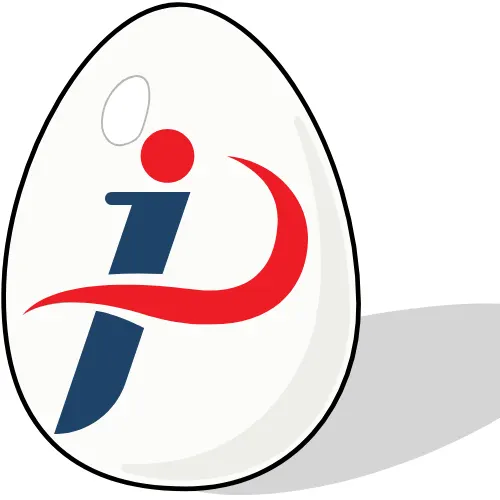The Supplemental Nutrition Assistance Program (SNAP)—better known as food stamps—has long been a critical support system for low-income Americans. But as of November 1, 2025, sweeping reforms under the One Big Beautiful Bill for America (OBBBA) have reshaped who qualifies, who must work, and who risks losing benefits.
These new rules, signed into law by President Donald Trump in July 2025, mark the most significant overhaul of the program in over a decade. Designed to tighten eligibility and promote employment, the changes have drawn both praise and criticism from economists, policymakers, and advocates for low-income families.
“This reform fundamentally changes how SNAP operates,” says Dr. Lisa Romero, Senior Policy Director at the Center for Food Security Studies. “Millions of people—especially older adults and part-time workers—are now required to meet stricter work rules or risk losing assistance.”
SNAP Benefits Changes 2025: Overview
| Change Area | Previous Rule | 2025 OBBBA Rule | Impact |
|---|---|---|---|
| ABAWD Age Range | 18–54 | 18–64 | Expands coverage to older adults |
| Parent Exemptions | Parents with children under 18 exempt | Now applies only if youngest child <14 | Many parents lose exemption |
| Veteran & Homeless Exemptions | Exempt from work requirements | Removed (with limited state exceptions) | Veterans/homeless must comply |
| Unemployment Area Waivers | Allowed in areas with 8.5%+ jobless rate | Now only >10% | Fewer geographic exemptions |
| Work Hour Requirement | 20 hours/week (ABAWD) | 80 hours/month (ABAWD) | Standardized nationwide |
| Compliance Period | 3 months out of 36 | 3 months out of 36 (unchanged) | Maintains time limit |
These changes aim to increase workforce participation among SNAP recipients but have raised concerns about access and fairness—especially for populations facing barriers to steady employment.
Expansion of Work Requirements
Under OBBBA, Able-Bodied Adults Without Dependents (ABAWDs) now face expanded work requirements:
- Must complete 80 hours/month in paid employment, training, or volunteer work.
- Applies to individuals aged 18–64 (previously capped at 54).
- Parents whose youngest child is 14 or older are now required to comply.
- Failure to meet the 80-hour minimum results in loss of benefits after three months within a 36-month period.
“This change adds nearly a decade of working-age individuals to the ABAWD category,” explains Mark Delaney, Labor Policy Advisor at Feeding America. “People in their late 50s and early 60s—many of whom struggle to find steady jobs—now face tougher requirements.”
End of Pandemic-Era Exemptions
During the COVID-19 pandemic, federal waivers suspended most ABAWD requirements. Those protections officially ended in 2025 with OBBBA’s implementation.
The November 1, 2025 rollout immediately reinstated strict verification standards, requiring states to track compliance through employment documentation and monthly reporting.
SNAP recipients began receiving notifications through their EBT portals and state agencies in late October, outlining the new rules and verification process.
Who is Impacted by the 2025 SNAP Changes?
According to government estimates, 5.4 million individuals across 2.7 million households will be directly affected by the new regulations.
Major Impact Groups:
- Adults aged 55–64 now subject to work requirements for the first time.
- Parents of teens (14+) who previously qualified for exemptions.
- Veterans and homeless individuals, as prior protections have been removed.
- Part-time workers and gig economy earners, who may struggle to prove consistent hours.
The U.S. Department of Agriculture (USDA) projects that between 700,000 and 900,000 ABAWDs will now need to meet new standards or face temporary benefit loss.
“Older adults nearing retirement are especially vulnerable,” notes Dr. Raymond Chu, Professor of Social Policy at Georgetown University. “Many can’t meet 80-hour work thresholds due to health issues or unstable job markets.”
How to Comply With the New SNAP Work Requirements?
General Work Rules (Ages 16–59, extending to 64):
- Must register for work with state employment services.
- Cannot voluntarily quit or reduce work hours without valid cause.
- Must accept suitable job offers when available.
Specific ABAWD Rules (Ages 18–64):
- Complete 80 hours per month of work, training, or volunteering.
- Provide documentation—such as pay stubs, W-2s, or employer verification.
- Maintain compliance or face a three-month benefit limit within 36 months.
State agencies will verify participation during recertification periods (every 4–24 months) and can request additional proof at any time.
Exemptions That Still Apply
Although OBBBA eliminated several exemptions, certain individuals remain protected:
| Category | Still Exempt (2025) |
|---|---|
| Individuals with verified disabilities | Yes |
| Pregnant women | Yes |
| Primary caregivers of children under 6 | Yes |
| Caregivers of children under 14 (ABAWD-specific) | Yes |
| Participants in drug/alcohol treatment | Yes |
| Part-time students in accredited training | Yes |
| Residents of areas with unemployment >10% | Yes (limited) |
| Certain Native American populations | Yes (state discretion) |
States retain discretion to grant up to 12% ABAWD case exemptions, typically prioritized for individuals facing medical or economic hardship.
Compliance Verification Process
To confirm eligibility and avoid disruptions, beneficiaries must:
- Submit proof of work, training, or volunteer hours each month.
- Update any change in employment or living status immediately.
- Respond promptly to all verification requests.
- Maintain accurate contact details with the state SNAP office.
Failure to provide documentation within set deadlines can lead to automatic suspension until compliance is verified.
Population Impact: Data Snapshot
| Group | Estimated Affected Population | Notes |
|---|---|---|
| ABAWDs (18–64) | 900,000 | Newly added under OBBBA |
| Older Adults (55–64) | 1.2 million | Previously exempt |
| Parents with Children 14+ | 1.8 million | Now subject to work rules |
| Veterans & Homeless | 600,000 | Lost previous exemptions |
| Gig & Part-Time Workers | 900,000 | Difficulty verifying hours |
The data suggest that up to 1 in 6 adult SNAP recipients must now either work, train, or volunteer to maintain continuous benefits.
Policy Debate: Support vs. Criticism
Supporters argue the reforms will reduce dependency and promote labor participation, framing OBBBA as a step toward fiscal responsibility.
“Taxpayers deserve accountability,” says Senator Blake Harrison (R-TX). “SNAP should be a bridge to work—not a long-term entitlement.”
Opponents counter that the law disproportionately harms vulnerable groups and overlooks economic realities, such as low wages and limited job access in rural or aging communities.
“This is not about fraud prevention,” argues Elaine Foster, Director of Hunger Action Network. “It’s about shifting responsibility to those least able to meet these standards.”
What Beneficiaries Should Do Now?
- Read your state SNAP notice carefully. Compliance deadlines vary.
- Track your work hours monthly and keep copies of all proof.
- Enroll in Employment & Training (E&T) programs if you’re struggling to meet requirements.
- Contact your local SNAP office to confirm whether you qualify for exemptions.
- Use your EBT portal to check notices and verify benefit status regularly.
Financial counselors also recommend building a small food emergency fund or connecting with community food banks in case of short-term benefit interruptions.
Conclusion
The 2025 SNAP reforms under OBBBA have introduced sweeping changes designed to promote employment but also risk increasing food insecurity among millions. While the intent is to reduce dependency, the new work rules and limited exemptions make compliance critical.
Retirees, older adults, and part-time workers must stay informed, maintain accurate documentation, and communicate with their state agencies to avoid interruptions in their benefits.
SNAP in 2025 looks very different—and beneficiaries must adapt quickly to keep their assistance flowing.
Frequently Asked Questions
When did the OBBBA SNAP changes take effect?
The new rules began on November 1, 2025, immediately after a short government shutdown.
Who is affected by the new work requirements?
Adults aged 18–64 without dependents, and parents of children aged 14 and older, must meet new employment standards.
How many hours must I work to keep benefits?
At least 80 hours per month through paid work, volunteering, or training programs.
Are any exemptions still available?
Yes—disabled individuals, caregivers, pregnant women, and residents in areas with 10%+ unemployment remain exempt.
What happens if I don’t meet the requirement?
You may lose benefits after three months and must requalify once compliance is verified.

